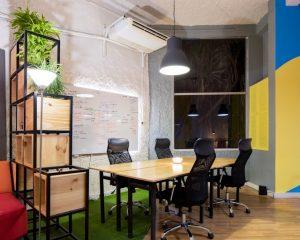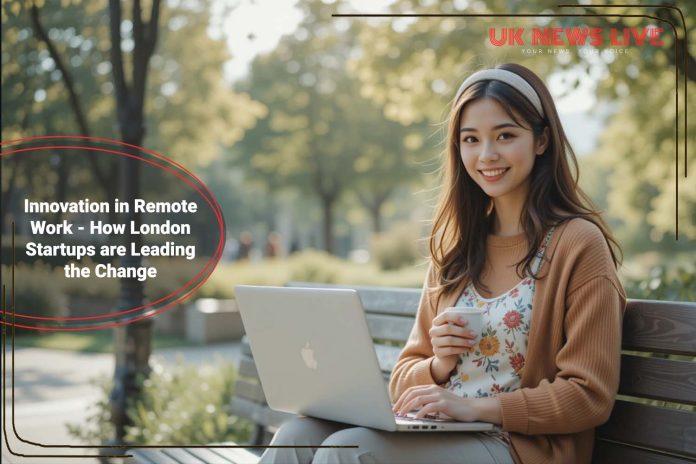London, a city synonymous with business innovation, is at the forefront of redefining the remote work landscape.
The shift from traditional office settings to flexible work arrangements has been embraced with vigor, particularly by startups determined to cultivate productive, happy workforces that thrive on flexibility.
Companies are increasingly adopting remote work strategies to cater to an enlightened workforce that values autonomy, mental health, and a balanced lifestyle.
Startups and Tech – A Smooth Transition?

Startups are leveraging new technologies and innovative work models, replacing antiquated hierarchies with agile, collaborative environments. The rise in remote work has catalysed new narratives in employee engagement, sustainable work practices, and community-driven office spaces.
This transition is not just altering how work is done but is also sparking a broader transformation in business culture, with the gaming industry, including betting platforms and non gamstop slots, leading the way.
This reinvention is not just about where people work, but how they think about work itself. One aspect that complements this transformation is the use of modular furniture solutions to create adaptable workspaces in both homes and offices.
Adapting Hybrid Work Models
In line with modern work preferences, many London startups have adopted hybrid work models. This innovative approach blends in-office and remote work or working from home, striking a balance that caters to diverse employee needs. While the primary task execution is possible remotely, in-office days facilitate face-to-face collaboration and team building.
This flexibility allows companies to maintain cultural cohesion and ensure dynamic team interactions without compromising on productivity. By offering a hybrid model, startups are not only enhancing employee satisfaction but also opening avenues for talent acquisition across global boundaries, making geographical limitations obsolete.
Emphasizing Flexibility and Wellbeing

The trend of prioritizing employee wellbeing is gaining ground, with London startups championing flexible schedules. Recognizing that work-life balance is a crucial component of mental health, these companies allow employees to tailor their work around personal commitments, reducing stress and enhancing job satisfaction.
Flexible working arrangements in remote working jobs empower employees to manage workloads more effectively while having time to recharge. Such practices demonstrate a deep understanding of modern workers’ need for autonomy, advocating a holistic approach to employee management that rewards productivity with balanced life choices.
Technological Advancements Facilitating Remote Work
Technological innovations are underpinning the remote work revolution spearheaded by London startups. Essential tools like Slack, Zoom, and various project management platforms are now staples in virtual offices, facilitating seamless communication and collaboration. These platforms support asynchronous work, allowing teams across different time zones to contribute effectively.
Furthermore, the rise of virtual reality technology is enhancing remote interactions, simulating in-person experiences that are crucial for maintaining team dynamics and morale in a remote-first setting. The strategic integration of these technologies plays a pivotal role in the ongoing success of remote work models. For instance, initiatives by Innovate UK help companies grow through their development and integration of cutting-edge technologies.
Cultural Shifts and Office Space Transformation

London startups are also influencing a cultural shift within work environments, moving towards inclusive and diverse workplaces. Traditional office hierarchies are dissolving as team-oriented, community-based approaches gain momentum. This transformation is mirrored in the evolution of office spaces, with many startups opting for coworking and flexible work environments that foster creativity and collaboration while reducing overhead costs.
Such spaces not only promote a sense of belonging but also align with the sustainability goals many companies are adopting. The move away from conventional office spaces to more tailored and dynamic environments reflects the broader societal shift towards flexible work solutions and sustainable business practices. Organizations like The World Economic Forum are supporting such shifts by sourcing and scaling purpose-driven startups working to solve global challenges.
Challenges and Growth Opportunities in Remote Work
While challenges such as maintaining effective communication and team coherence persist in remote settings, these obstacles are being tackled with innovative solutions. London startups are turning these challenges into opportunities for growth by fostering resilience and adaptability within their teams.
Encouraging open communication, leveraging technology wisely, and promoting continuous feedback are strategies employed to address these potential downsides. Moreover, the flexibility offered by remote work models presents vast opportunities for scaling businesses and expanding talent pools, offering startups a competitive edge in the ever-evolving business landscape.
































